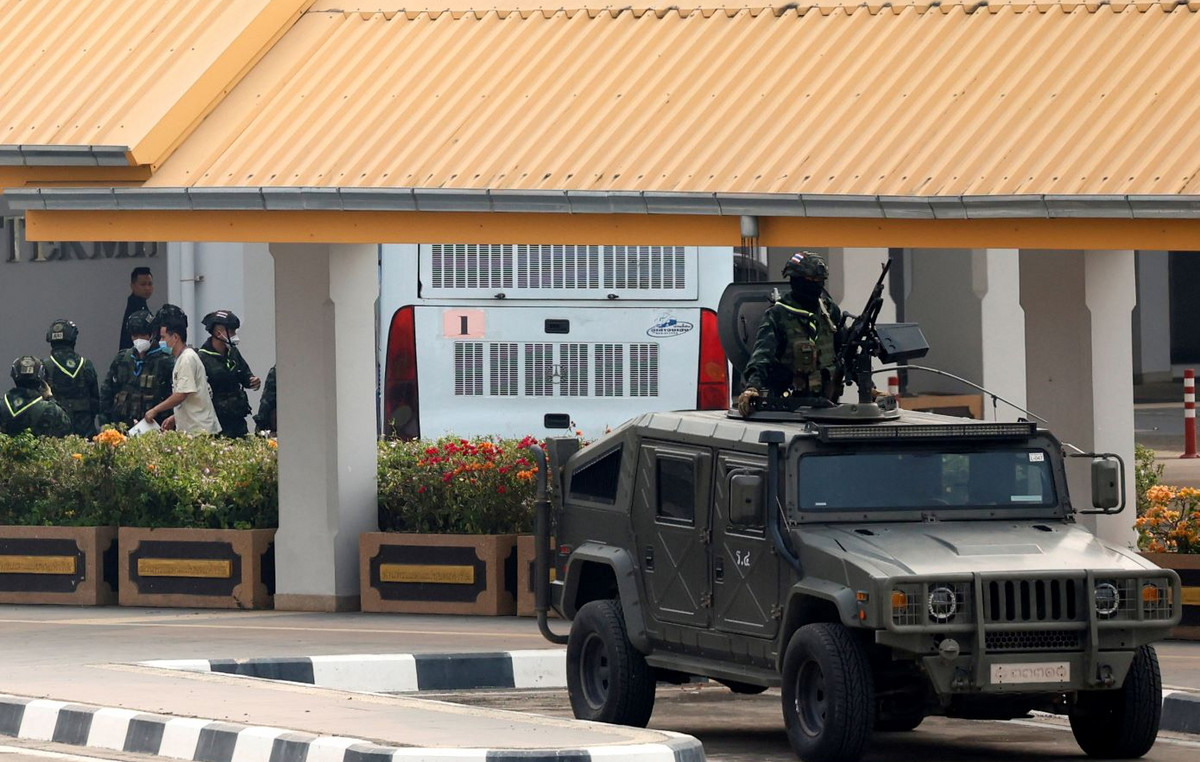The diplomatic crisis between Brazil and Venezuela reached a new level, this Wednesday (30), with the announcement by the Venezuelan Foreign Ministry of a call for consultations with its ambassador in Brasília, Manuel Vadell. Venezuela is also in crisis with at least 10 other countries in the region.
The announcement from Caracas this Wednesday is the latest chapter in an impasse that has grown since Brazil began insisting that the government of President Nicolás Maduro show the electoral records that would support the victory in the July 28 presidential election, declared by the authorities of the country.
Maduro has also complained about the blockade imposed by Brazil on the entry Venezuela as a country associated with the BRICS during the most recent summit, held in Kazan, Russia.
The crisis with other countries

Brazil is not the only Latin American neighbor to sustain a crisis with Nicolás Maduro’s government in recent weeks.
Since July’s contested elections, Chavistas have witnessed deteriorating relations with a number of countries.
For example, Venezuela announced the expulsion of the diplomatic team from Argentina, Chile, Costa Rica, Peru, Panama, Dominican Republic and Uruguay.
On that occasion, the government said it rejected the accusations of a “group of right-wing governments subordinate to Washington, openly committed to the most sordid fascist ideological positions”.
In a statement, the country also stated that these countries are attacking Venezuelan sovereignty by not accepting the results of the elections announced by the National Electoral Council (CNE).
“It is an atypical situation for diplomatic and customs regulations; It is not included in either the Vienna Convention on diplomatic relations or the Caracas or Montevideo Conventions on asylum. It is a suspension of diplomatic relations without breaking diplomatic relations”, he explained to CNN the former vice-chancellor of Argentina and the country’s former ambassador to the UN, Fernando Petrella.
However, long before the announcement of the expulsion of diplomats, Venezuela had already opted for political isolation in the region. For example, by withdrawing from the Organization of American States (OAS). Furthermore, physical isolation adds to political isolation. Venezuela has suspended flights with Panama, for example, which is a fundamental air link because all flights to the north of the continent, including the United States, depart from there.
In the case of Argentina, the situation proved to be even more serious, since the expulsion affects the six Venezuelan opposition members of María Corina Machado’s team who are taking refuge in the Argentine embassy in Caracas. Brazil took custody of the embassy in early August.
Furthermore, it is also possible to mention Ecuador, Guatemala and Paraguay when considering countries in crisis with Venezuela.

At the end of August, these countries joined a series of countries in a joint statement in which they “categorically rejected” the announcement by the Supreme Court of Justice of Venezuela which indicated that it had concluded a supposed verification of the results of the electoral process and which seeks to validate the unproven results issued by the electoral body”.
In the statement, the governments reiterate that “only an impartial and independent audit that evaluates all the minutes will guarantee respect for the popular will”.
The statement was well received by opponents. Opposition leader María Corina Machado said that “the democratic world is on the side of the people of Venezuela and respect for our popular sovereignty”, adding that “no one believes in the STJ’s crude maneuver to hide the minutes that demonstrate the overwhelming victory of Edmundo González Urrutia.”
The Maduro government reacted almost immediately by rejecting the declaration “in the strongest terms” and describing the countries that signed as “failed”.
The ministry led by Chavista Chancellor Yván Gil also said that the signatories of the document commit “transgressions to international law” by interfering in their internal politics and that their country will “pulverize each and every one of the actions that they try to initiate through their failed governments against the Venezuelan people.”
The crisis between Venezuela and Ecuador escalated even before the July elections. In April, Maduro ordered the closure of his embassy and consulates in Ecuador in the face of an invasion of the Mexican embassy by Ecuadorian police.
This content was originally published in Venezuela: at least 10 countries in the region are in crisis with Maduro in addition to Brazil on the CNN Brasil website.
Source: CNN Brasil
Bruce Belcher is a seasoned author with over 5 years of experience in world news. He writes for online news websites and provides in-depth analysis on the world stock market. Bruce is known for his insightful perspectives and commitment to keeping the public informed.







